Contents
| |
1993 • 1994 •1995 • 1996 • 1997 |
| Decades: |
| See also: History of Macau |
Events from the year 1995 in Portuguese Macau .
| |
1993 • 1994 •1995 • 1996 • 1997 |
| Decades: |
| See also: History of Macau |
Events from the year 1995 in Portuguese Macau .
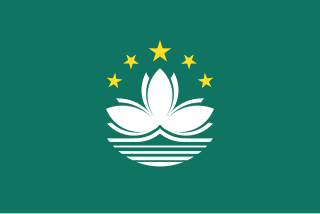
Macau or Macao is a special administrative region of the People's Republic of China. With a population of about 710,000 people and a land area of 32.9 km2 (12.7 sq mi), it is the most densely populated region in the world.
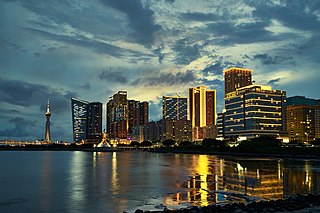
The economy of Macau is a highly developed market economy. Macau's economy has remained one of the most open in the world since its handover to China in 1999. Apparel exports and gambling-related tourism are mainstays of the economy. Since Macau has little arable land and few natural resources, it depends on mainland China for most of its food, fresh water, and energy imports. Japan and Hong Kong are the main suppliers of raw materials and capital goods. Although Macau was hit hard by the 1997–98 Asian financial crisis and the early 2000s recession, its economy grew approximately 13.1% annually on average between 2001 and 2006. Macau is a full Member of the World Trade Organization. Public security has greatly improved after handover to the People's Republic of China. With the tax revenue from the profitable gambling industry, the Macau government is able to introduce the social welfare program of 15 years of free education to all Macau citizens. In 2015, Macau's economy saw a sharp decrease due to the reduced spending by visitors from Mainland China since the Anti-corruption campaign under Xi Jinping.

Transport in Macau includes road, sea, rail and air transport. Road transport is the primary mode of transport within Macau, although a new rail system opened in December 2019 serving the areas of Taipa and Cotai. The main forms of public transport are buses and taxis.
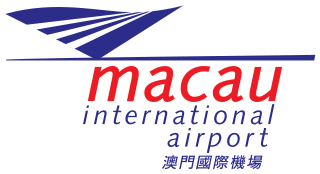
Macau International Airport is an international airport in the special administrative region of Macau, situated at the eastern end of Taipa island and neighbouring waters. It opened for commercial operations on 9 November 1995, during Portuguese administration of the region.

Taipa is an area in Macau, connected to Coloane through the area known as Cotai, which is largely built from reclaimed land. Located on the northern half of the island, Taipa’s population is mostly suburban. Administratively, the boundaries of the traditional civil parish Freguesia de Nossa Senhora do Carmo are mostly coterminous with that of the former Taipa Island, except for a portion of the parish that lies on the island of Hengqin (Montanha), housing the campus of the University of Macau.

The Macanese pataca or Macau pataca is the currency of the Macao Special Administrative Region of the People's Republic of China. It is subdivided into 100 avos, with 10 avos called ho (毫) in Cantonese.
Macau is an autonomous territory within China. A Portuguese colony until 1999, Macau has a diverse culture firmly rooted in Cantonese culture, with a mix of influences from East Asia and Western Europe. Macau is known for being the largest gambling center in the world.

The Macau national football team represents the Chinese special administrative region of Macau in international association football. The team is supervised by the Macau Football Association. The Macau football team has a ranking that is one of the lowest among the FIFA members. Although usually known as simply Macau, the EAFF refers to the team as Macau, China.
Air Macau is the flag carrier of Macau. It operates services to 24 destinations in Mainland China, Indonesia, Japan, Singapore, South Korea, Taiwan, Thailand and Vietnam, from the airline's home base at Macau International Airport. In 2014, Air Macau carried 2.12 million passengers with an average load factor of 68.20% and carried 15,900 tonnes of cargo and mail.
Macanese cuisine is mainly influenced by Chinese cuisine, especially Cantonese cuisine and European cuisine, especially Portuguese cuisine and influences from Southeast Asia and the Lusophone world, due to Macau's past as a Portuguese colony and long history of being an international tourist gambling centre.
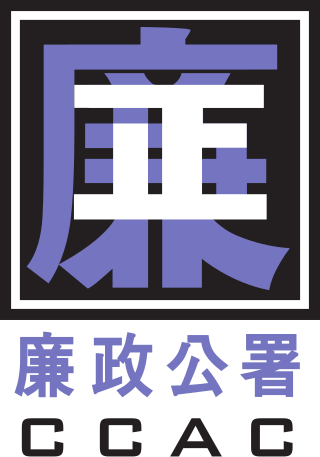
The Commission Against Corruption is the statutory independent anti-corruption body of Macau with the primary objective of combating corruption, bribery, and other illicit activities in both the public and private sectors. Established in 1999 under the Article 59 of the Macau Basic Law, the CCAC is headed by the Commissioner, who reports directly to the Chief Executive of Macau.

The Macau Grand Prix is an annual motorsport road racing event for automobiles and motorcycles held on the Guia Circuit in Macau. The event includes the Formula 3 Macau Grand Prix and Macau Motorcycle Grand Prix title races, with other races for touring, grand touring, sports and Formula 4 cars.

The Macau Scientific and Cultural Centre, endowed with administrative autonomy and individual capital, is a public institute integrated within the internal administration of the Portuguese state, under the supervision of the Ministry of Science, Technology and Higher Education. The centre's mission is to produce, promote and disseminate knowledge about Macau as a platform between Portugal and the People's Republic of China, as well as between Europe and Asia. The centre is also a forum dedicated to studying and teaching the Chinese language and China's culture and history, and a centre for scientific research and ongoing and advanced training, on international relations between Portugal and China, and between Europe and Asia. The centre was created in 1995 by the initiative of the government in Macau in cooperation with the government of Portugal, and was inaugurated in 1999.

The Outer Harbour Ferry Terminal, also known as the Macau Maritime Ferry Terminal, Macau Ferry Terminal or Hong Kong-Macau Ferry Pier in Chinese, is a ferry terminal located at Porto Exterior, Sé, Macau, China.
Liga de Elite, previously known as Campeonato da 1ª Divisão do Futebol, is the top division of the Macau Football Association, created in 1973. The league features local players and professional foreign players. Due to the lack of football fields in Macau, most matches are played at the Estádio Campo Desportivo. As with Hong Kong, the league is separate from the mainland Chinese football league system. The league is generally played between January and July of each calendar year.
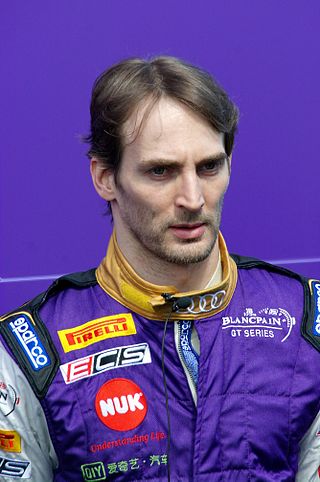
André Bragança Macedo e Couto is a Macanese motor racing driver who is best known for winning his home F3 Grand Prix in 2000 and the 2015 Super GT Series in the GT300 class.

The Public Security Police Force is the non-criminal police department of Macau and a branch of the Macau Security Force. Originally known at first as the Macau Police, the force went through several name changes before taking on its current name. The PSP celebrates its foundation on 14 March 1691.

Capital punishment in Macau was formally abolished in 1976 and reiterated in the Penal Code of Macau in 1995.

Macau was a Portuguese colony from the establishment of the first official Portuguese settlement of Macau in 1557 to its handover to China in 1999. It comprised the Municipality of Macau and the Municipality of Ilhas. Macau was both the first and last European holding in China.

The 1995 Macau Grand Prix Formula Three was the 42nd Macau Grand Prix race to be held on the streets of Macau on 19 November 1995. It was the twelfth edition for Formula Three cars. Ralf Schumacher of WTS Racing, brother of 1990 winner Michael Schumacher, won the 15-lap race, which was shortened because of a fourteen-car accident at San Francisco Bend turn on the second leg's first lap that was caused by Norberto Fontana running wide and hitting the wall beside the track, sending him back into the path of other cars. Ralf Schumacher was the third German to win the race in the past three editions after Jörg Müller won the 1993 iteration and Sascha Maassen won the 1994 race. Jarno Trulli finished in second for KMS and TOM'S driver Pedro de la Rosa was third.